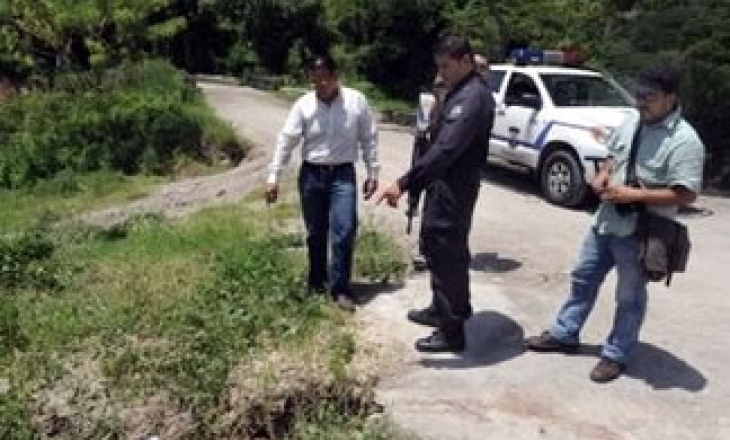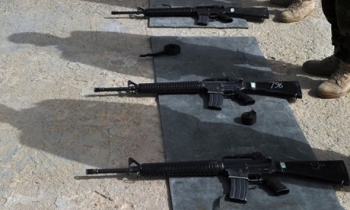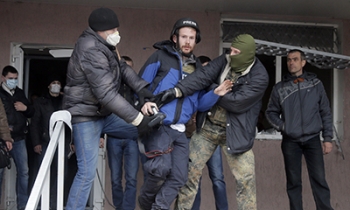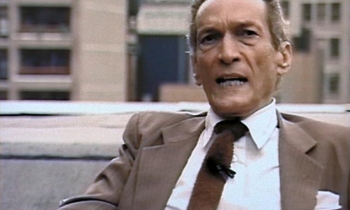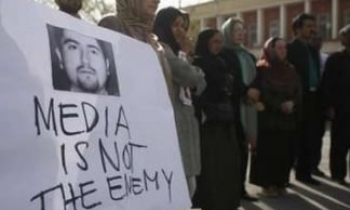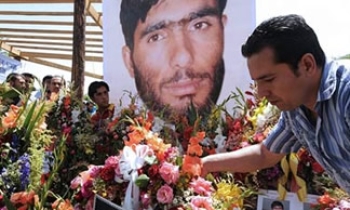The bullet-ridden body of journalist Christian Poveda, whose new documentary on a violent Salvadoran street gang was scheduled for wide release this month, was discovered Wednesday afternoon just north of the capital, San Salvador.
Salvadoran police found Poveda's body sprawled near his car on an isolated road in the town of Tonacatepeque, about 10 miles (15 kilometers) from the capital, the New York-based Committee to Protect Journalists said quoting local reports. He had been shot in the face at least four times at close range. Witnesses told local reporters that they called police after hearing several gunshots. Authorities found an audio recorder and Poveda's press credentials at the scene.
Poveda, a 52-year-old Frenchman of Spanish descent, had documented violence in El Salvador as a filmmaker and photojournalist over the course of three decades. Throughout 2008, he worked on a highly anticipated documentary about one of the country's most violent gangs, Mara 18. During the filming of the documentary, Poveda lived with gang members for 18 months. Local press reports said Poveda had received death threats from angry gang members.
The documentary, "La Vida Loca," had already been screened at international film festivals and was scheduled for wide release on September 30. It showed brutal killings, rites of initiation, and the judicial system's ineffectiveness in combating gangs.
Tonacatepeque is controlled by Mara 18, local press reports said. At the time of the murder, Poveda was reportedly travelling from nearby La Campanera, a town controlled by Mara 18's main rival, Mara Salvatrucha. Confrontations between the two gangs have been extremely violent, press reports said.
Local authorities are investigating Poveda's killing, national police spokesman Hugo Ramírez told the local news website Elfaro. According to press reports, authorities are investigating Poveda's documentary work as a possible motive. Salvadoran President Mauricio Funes issued a statement Wednesday condemning Poveda's killing and calling for an end to street violence.
"This brutal murder sends a chilling message to journalists in El Salvador, where rampant gang-related violence is the most sensitive issue for the press," said Carlos Lauría, CPJ's senior programme coordinator for the Americas. "Salvadoran authorities must ensure that this crime does not go unpunished."
A CPJ analysis published earlier this year found that journalists covering gang violence in El Salvador and other parts of Latin America had become targets themselves. Gang violence has become widespread in El Salvador, especially in the poor neighbourhoods outside San Salvador, the analysis noted. Salvadoran journalists told CPJ that security concerns prevent in-depth reporting on the origins and causes of gang violence.
Reporters Sans Frontières (RSF) had some background info about Poveda:
Christian Gregorio Poveda Ruiz was born in France on 12 January 1955. He established his reputation as a photo-journalist with a report about the Polisario Front’s war in Western Sahara. Many more reports followed, as well as documentaries that were screened in festivals and broadcast by TV stations.
He began going to El Salvador for the first time in the 1980s to cover the 1980-92 civil war, as a photographer for Time magazine as a correspondent for French news media and international news agencies. He returned to El Salvador in the 1990s, this time covering the armed gang phenomenon. He also covered wars in Iran, Iraq and Lebanon.
Poveda spent 16 months with the gangs in the east San Salvador of La Campanera in order to make La Vida Loca, which was broadcast for the first time in 2008 and focuses on “Mara 18.” Its images are crude and disturbing – gang members gunned down in the street, the corpses of teenagers, relatives weeping over coffins, young women with their faces covered with tattoos.
According to the local media, Poveda witnessed seven murders in the course of making the film. Three of the seven victims were people who figure prominently in the documentary. Other Mara 18 members who appear in the film were arrested while it was being made.
La Vida Loca also takes a critical look at the strong-arm methods used by the police against the young gang members. While recognising that they sow terror, it portrays gang-members as victims of broken homes who nonetheless fascinate. It also tries to show how young Salvadoreans are pushed into crime by social and economic conditions which, in his view, are too often ignored.“We must try to understand why a child of 12 or 13 joins a gang and gives his life for it,” Poveda said in an interview for the Salvadorean online daily El Faro. Already broadcast in Spain, Mexico, Argentina, Germany and Hungary, La Vida Loca has never been screened in El Salvador.

